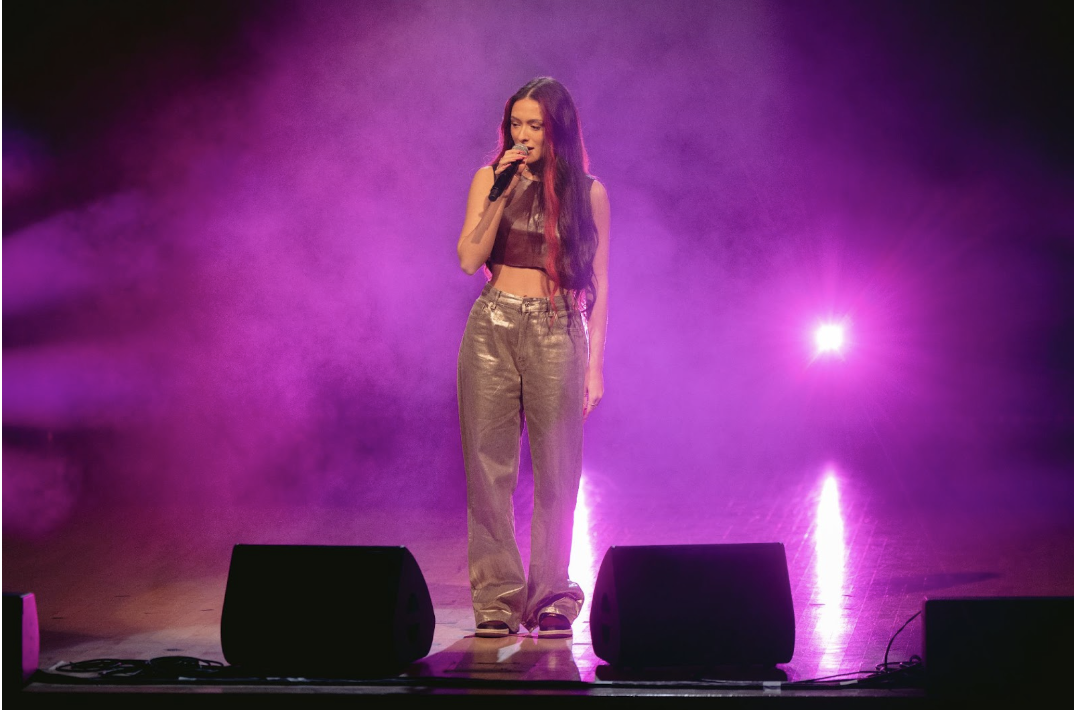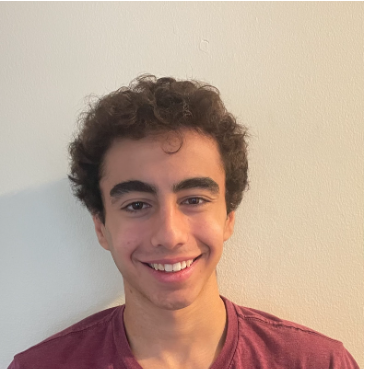On November 4th, Milken had the pleasure of welcoming Israeli citizen and Eurovision 2024 contestant Eden Golan to their East Campus’ Gindi Auditorium three separate times to perform two songs and participate in a Q&A with student Ella L. (‘26). The school scheduled the first performance for grades 6-9, the second for grades 10-12, and the third, in the evening, for Milken parent/guardians. The last Q&A in the evening also included Milken’s Associate Head of School of Academics Limor Dankner, who asked Golan questions with Ella L. (‘26) too.
Golan first sang a single she wrote called “Older” and then performed “Hurricane” (written by Stav Beger, Keren Peles, and Avi Ohayon), the song she performed at Eurovision. During the Q&A sessions, she spoke about her childhood, where she was on October 7th, and her experience facing hate as a consequence of being Israeli and Jewish during this year’s Sweden-hosted Eurovision Song Contest 2024, where she ended up coming in fifth place.
Countries not within Europe, like Israel and Australia, can compete in the annual Eurovision song contest. The winner hosts the following year, and in the past, Israel has won the Eurovision competition four times, the first time in 1978 with Izar Cohen and Alphabeta’s performance of “A-Ba-Ni-Bi’s”, the next in 1979 with Milk and Honey’s performance of ‘Hallelujah”, then in 1998 with Dana International’s singing of ‘Diva”, and most recently, in 2018, with Neta Barzillai singing her song, “Toy”.
Golan was born and lived in Israel until she was 6-years-old and then moved to Moscow due to her father’s work. As one of the only Jewish people at her school, she grew up facing antisemitism without really realizing it until later. When the war in Ukraine began, she moved back to Israel with her family and reconnected to her homeland. Though she continued to successfully advance her music career, the attacks on October 7th deeply affected her emotionally. The intense weight that lay on her shoulders as she represented Israel in the Eurovision during the difficult time the country faced became very real.
However, even as the judges rejected the first version of the song “Hurricane” – then titled “October Rain”– too “political”, she and the song’s writers persevered and decided to change the song’s title and some of the lyrics to the current version to give Israel a chance to compete. Throughout her time representing Israel, she constantly faced threats and blatant antisemitism that required Israel to send an elite security force with her. This, once again, did not limit her efforts as she proudly stated during the competition: “Nothing will break me. I love my country!”

As the judges began announcing the final scores of the 2024 Eurovision singing contest, Israel’s team heard they had only awarded it a mere 52 points, and Eden Golan had not even joined the ranks of the top 15 nations.
She had one hope: the audience score. As many in the crowd booed Golan, the results came in with a massive 323 point boost in audience votes for Golan and her performance of “Hurricane”. This paved the way for an amazing fifth place finish for Israel. It became clear that people all over the world not only responded meaningfully to “Hurricane” and Golan’s performance of it but also recognized Israel’s struggles and chose to support her as a voice at the contest for those struggles.
For Milken students and parents/guardians, being able to hear Golan sing “Hurricane” and “Older” in person brought a huge amount of fresh energy and meaning to what otherwise would have felt like a regular school day. Students sang along, cheered for her, and experienced a concert with impressive light displays the Gindi Auditorium provided. The performance reminded the Milken community of the intense perseverance and commitment to love for Israel Golan displayed in the face of hatred, one they could continue in their own everyday lives.
“Be loud and be proud,” Golan said during her Q&A. “Show the world we are one big family.”




